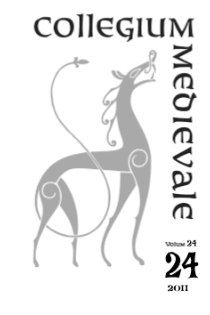Sammendrag
The article concerns the ghost story of Eyrbyggja saga, the so-called 'wonders of Fróðá' (Fróðárundr), and examines the symbolic meanings of this episode as they were interpreted in medieval Iceland. The analysis presupposes that, although the restless dead could be understood as 'real' by medieval readers and as part of their social reality, the heterogenic nature of the audience and the learning of the writers of the sagas made possible various interpretations of the ghost-scene, both literal and symbolic. It is argued that the living dead in Eyrbyggja saga act as agents of order, whose restlessness is connected to past deeds of those still living that have caused social disequilibrium. In Fróðárundr these actions involve expressions of disapproved sexuality and birth of offspring with indeterminate social status. For the ghost-banisher the hauntings represent an opportunity to improve his own indeterminate status.
Forfattere beholder opphavsretten og gir tidsskriftet rett til første publisering av arbeidet. En Creative Commons-lisens (CC BY-SA 4.0) gir samtidig andre rett til å dele arbeidet med henvisning til arbeidets forfatter og at det først ble publisert i dette tidsskriftet.

